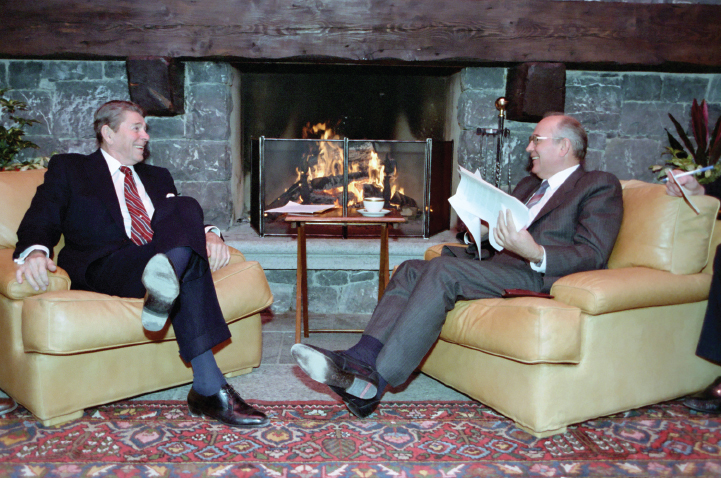How did Ronald Reagan’s foreign policy affect the Cold War?
Printed Page 921

Figure false: The Fireside Summit
Figure false: This photograph captures the warmth that developed between President Ronald Reagan and Soviet leader Mikhail Gorbachev at their first meeting in Geneva in November 1985. Although the meeting did not produce any key agreements, the two men began to appreciate each other’s concerns and to build trust, launching a relationship that would lead to nuclear arms reductions and the end of the Cold War. Ronald Reagan Presidential Library.
CHRONOLOGY
1983
- – Terrorist bomb kills 241 U.S. Marines in Beirut, Lebanon.
- – Reagan announces Strategic Defense Initiative (“Star Wars”).
1986
- – Iran-Contra scandal.
1987
- – Intermediate-range nuclear forces (INF) agreement is signed.
RONALD REAGAN ACCELERATED Jimmy Carter’s arms buildup and harshly censured the Soviet Union, calling it “an evil empire.” Yet despite the new aggressiveness — or, as some argued, because of it — Reagan presided over the most impressive thaw in superpower conflict since the Cold War had begun. On the periphery of the Cold War, however, Reagan practiced militant anticommunism, assisting antileftist movements in Asia, Africa, and Central America. He also dispatched troops to the Middle East and the Caribbean.